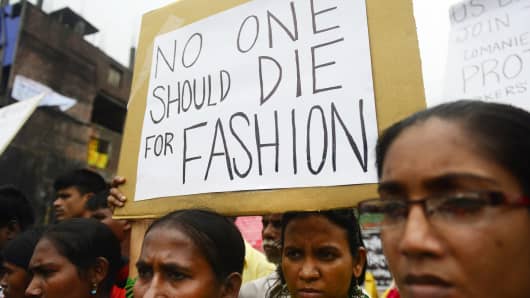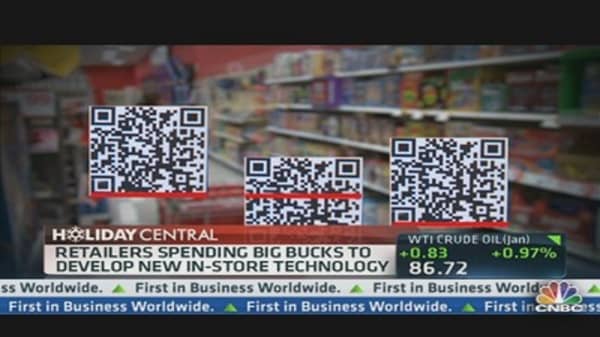"I think in five years' time we'll see much greater availability" of ethically sourced clothing, said Heather Franzese, director of Good World Solutions, an organization trying to make global supply chains more transparent.
Labor Link, an initiative created by Good World Solutions, is a mobile platform that lets workers report conditions in their factories. The idea, Franzese says, is to give apparel manufacturing executives better information about their supply chains.
In one garment manufacturing center in India, for example, a Labor Link survey revealed that 80 percent of workers were not receiving their legally mandated health benefits. Some of the companies operating there "were able to negotiate more effectively with factory management, saying, 'Look, we have this data directly from workers, what are you going to do about it?' " Franzese said.
(Read more: 10 cool American-made products)
The Ethical Fashion Forum, a British organization created in 2005, offers an industry network called SOURCE that provides members with a "sustainable sourcing directory." The forum also runs a trade show for sustainable clothing manufacturers and suppliers, and in 2012 it was held online.
There are also online start-ups that aim to help consumers find small businesses producing ethically sourced clothing. Fashioningchange.com has a page called "Wear This, Not That" displaying ethical alternatives to items from a number of well-known apparel makers.
Of course, ethical clothing can mean more than one thing to consumers. Some want apparel made according to fair labor standards or environmentally friendly processes, while others want sustainable fabrics.
Zady, a site that will launch in the next few months, promises to offer clothing that is locally sourced, handmade and created to last. Fast fashion "is horrible for the environment and horrible for fair labor," said Soraya Darabi, a co–founder.
Online initiatives are likely to continue expanding the reach of ethically sourced clothing, according to Franzese. Already, she said, some brands include information on product sourcing in QR codes on the tags. She predicts that consumers eventually may be able to communicate directly with the people producing their clothes.
(Read more: Welcome Home: 'Made in USA' on the Rise)
"As consumers are able to support the ethical products that are out there, companies get the message," Franzese said. "We still don't have as many ethical alternatives for clothing, but we're starting to see that transformation."
—By CNBC's Kelley Holland. Follow her on Twitter @kelleyholland





